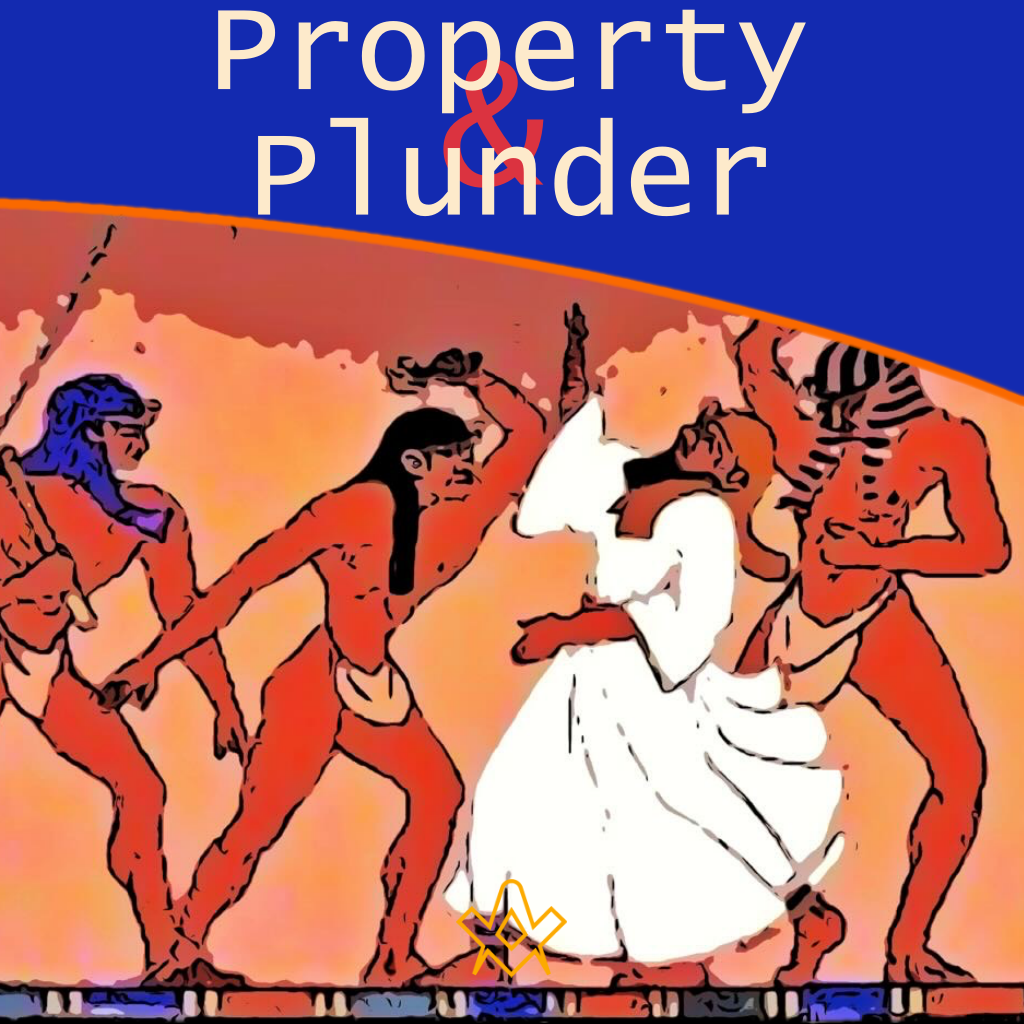Man can live and satisfy his wants only by ceaseless labor; by the ceaseless application of his faculties to natural resources. This process is the origin of property.
But it is also true that a man may live and satisfy his wants by seizing and consuming the products of the labor of others. This process is the origin of plunder.
Now since man is naturally inclined to avoid pain — and since labor is pain in itself — it follows that men will resort to plunder whenever plunder is easier than work.
History shows this quite clearly. And under these conditions, neither religion nor morality can stop it.
When, then, does plunder stop? It stops when it becomes more painful and more dangerous than labor.
It is evident, then, that the proper purpose of law is to use the power of its collective force to stop this fatal tendency to plunder instead of to work. All the measures of the law should protect property and punish plunder.
But, generally, the law is made by one man or one class of men. And since law cannot operate without the sanction and support of a dominating force, this force must be entrusted to those who make the laws.
This fact, combined with the fatal tendency that exists in the heart of man to satisfy his wants with the least possible effort, explains the almost universal perversion of the law.
Thus it is easy to understand how law, instead of checking injustice, becomes the invincible weapon of injustice.
It is easy to understand why the law is used by the legislator to destroy in varying degrees among the rest of the people, their personal independence by slavery, their liberty by oppression, and their property by plunder.
This is done for the benefit of the person who makes the law, and in proportion to the power that he holds.
– Claude-Frédéric Bastiat (1801-1850)
Source: http://bastiat.org/en/the_law.html
Claude-Frédéric Bastiat (/bɑːstiˈɑː/; French: [klod fʁedeʁik bastja]; 30 June 1801 – 24 December 1850) was a French economist, writer and a prominent member of the French Liberal School.
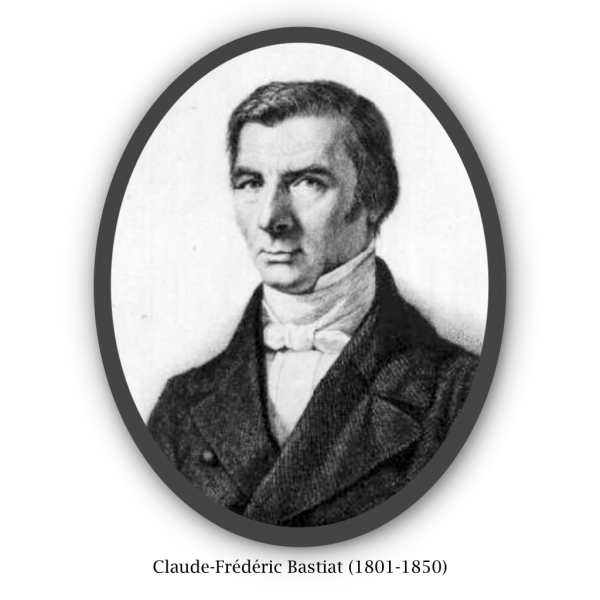
A Freemason and a member of the French National Assembly, Bastiat developed the economic concept of opportunity cost and introduced the parable of the broken window.
He was described as “the most brilliant economic journalist who ever lived” by economic theorist Joseph Schumpeter.
As an advocate of classical economics and the economics of Adam Smith, his views favored a free market and influenced the Austrian School.
He is best known for his book The Law (1850) where he argued that law must protect rights such as private property, not “plunder” others’ property.
Source: https://en.wikipedia.org/wiki/Fr%C3%A9d%C3%A9ric_Bastiat
Further Reading: https://www.investopedia.com/ask/answers/08/broken-window-fallacy.asp
The third degree ceremony (under English Constitution) is a two act playlet; each act with a number of short scenes conveying a moral truth in an allegorical format.
For most Master Masons, who have just completed their third degree, the principle moral truth of the degree is that of the Hiram Abiff remaining true to his obligation; by not divulging his Masonic secrets even under the treat of impending death. But there is another side to that truth, and that is of the ‘Three Ruffians’.
The story of the ruffians is often overlooked. Their story is of plunder – taking that which they have not yet earned.
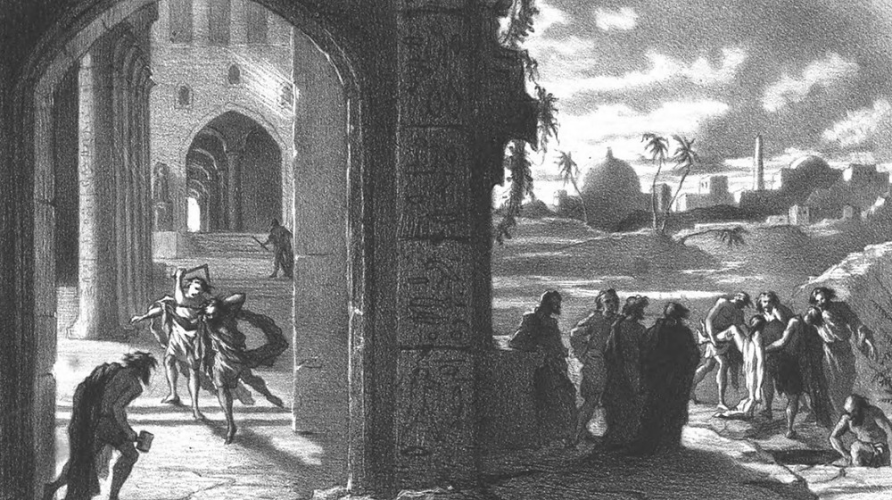
The ruffians who had worked, in their view diligently, over a prolonged period of time, and having been appointed to oversee the other craftsmen on the building of the temple, felt that enough was enough, and they were entitled to the secrets of the Masters.
In our ceremonies, we use secrets to symbolise access to higher levels. In the real world this might be a qualification or job promotion. The secret is an access or qualification to the higher level.
On confronting Hiram for the secrets of his exalted degree, he intimated to the three that he had no doubt patience and industry, in due time, would entitle a worthy Mason to a participation in them. In other words, they will need to keep up the good work to gain access to that higher level.
Never-the-less, the ruffians, not satisfied with his suggestion, collectively used force to extract the secrets they were not yet entitled to have, which lead to Hiram Abiff’s premature death – and their own.
Both perpetrator and victim lost everything
In life we will encounter craftsmen who work diligently in their chosen craft to add value to society. We also meet craftsmen, turned ruffians, who feel entitled and want to take that which they have not earned. And for some part, these Ruffians may appear to be successful, elevating them selves beyond their capability.
Make no mistake, the ruffian may well be a Freemason, pays his dues, and attends meetings, but will never be better citizen of the world.
The craftsman who talks less about his own achievements and that of others, who puts in the work, and can demonstrate the value to society, to his family, his community, his work colleagues, and in open lodge – he is the Freemason who will be a better citizen of the world.
Article by: Nicholas J Broadway
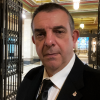
Nicholas was initiated into Freemasonry in 1989 in Stonewell Lodge No. 9137, Essex England (UGLE) and was Master in 1995, 2011 and 2016. He also joined other UGLE craft Lodges and is a PZ in the Royal Arch Chapter.
He acquired the title of The Square Magazine in January 2020 and oversees the technical running of the digital publication.
Recent Articles: skill series
 Freemasonry and Reskilling in the age of AI The article explores the challenges and strategies organizations face in reskilling their workforce in the era of automation and artificial intelligence. It highlights the need for companies to view reskilling as a strategic imperative and involve leaders and managers in the process. The article also emphasizes the importance of change management, designing programs from the employee's perspective, and partnering with external entities. |
 Ten Central Commandments or Principles of Freemasonry Embrace the wisdom of Freemasonry's teachings in your personal journey towards self-improvement and stronger leadership. By upholding virtues of integrity, compassion, and respect, and uniting these with a commitment to continuous learning and social responsibility, inspire change. Transform yourself and the world around you, fostering a legacy of positivity and enlightenment. |
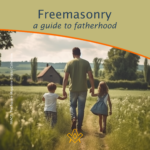 Freemasonry: A Guide to Fatherhood In the sacred halls of Freemasonry, fathers discover a hidden power to transform their parenting journey. With its timeless values, supportive community, and life-enriching teachings, Freemasonry empowers fathers to provide a moral compass, foster self-improvement, build stronger connections, and embrace the confidence and wisdom needed to navigate the complex realm of fatherhood. |
 Courage as a core value in Freemasonry Freemasonry, a revered fraternity, prioritizes virtues like honesty and charity. However, courage is foundational. From Plato to Maya Angelou, courage is vital for other virtues. Freemasonry's teachings, referencing events like Gettysburg, emphasize diverse courage forms. In today's divided world, Masons promote and exemplify courage, understanding its importance in facing challenges. |
 How Freemasonry Cultivates Ideal Entrepreneurial Traits Freemasonry's cryptic rituals hold timeless lessons for building entrepreneurial greatness. Through tests of passion, vision and skill, Masonic teachings forge ideal traits like grit, creativity and alliance-making needed to seize opportunity and elevate enterprises. The right commitment unlocks code for entrepreneurial success. |
 What you see praiseworthy in others "What you see praiseworthy in others, carefully imitate, and what in them may appear defective, you will in yourself amend". This passage of Masonic ritual (Taylors Working, Address to the w |
 How to Learn Ritual with a Learning Disorder So what do you do when faced with that little blue book? Most Masons when first looking at the ritual book can understandably be fazed – the tiny print, the missing words, the questions and answers! Learning ritual can be a challenging task for anyone, especially individuals with learning disorders, but it is not impossible. Here are some tips to help make the process easier. |
 A "mind palace", also known as a "memory palace", is a technique for memorizing and recalling information. How would your life change if you could remember anything and everything? Discover the 'Mind Palace' and all will be revealed. |
 What is leadership and who does freemasonry help develop those skills needed to be a better leader |
 A story of the 'Ruffians' – those individuals whose paths cross ours, who feel entitled to seize and consume the property of others that they have not earned. A lesson to build character to be a better citizen of the world. |
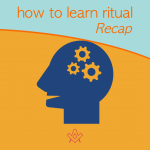 Now we are back in the Lodge room once again, maybe it is time to review how we learn and deliver ritual and look at different ways of improving that process. |
 Making an advancement in Masonic Knowledge can become far easier when you 'learn how to learn'. |
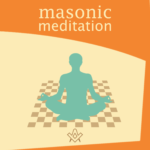 Learn how to practise Masonic meditation in a busy world with all its care and employments |
 Struggling to learn your ritual? Become a 5-Minute Ritualist with the aid of a book of the same name. |
 Day in the life of a Freemason As we start a new year, maybe start it with a new habit? |
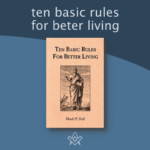 Ten Basic Rules For Better Living Ten Basic Rules For Better Living by Manly P Hall |
 How can we use masonic leadership skills to avoid confrontational situations? |
 How the Trivium is applied to Critical Thinking - {who, what, where, when} - {how} - {why} |
 The Seven Liberal Arts - why 'seven', why 'liberal', why 'arts'? |
 How to improve your public speaking skill with 6 techniques |
 Do you need to speak in public, or present Masonic ritual without notes ? |
 What are logical Fallacies and how to spot them |
 Share one easy tip to learn masonic ritual; Some good tips from Facebook followers |
 How can we use the 7 secrets of the greatest speakers in history |
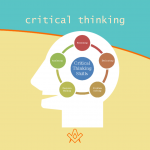 What is a critical thinker and what are their characteristics? |
 Share one personal skill Freemasonry helped you to improve? How can we make practical use of the lessons taught in Masonic writings? |
 An introduction to the art of public speaking - speak with confidence |
 Seven Liberal Arts and Sciences What do you know about Seven Liberal Arts and Sciences |
 Three Words That Will Change Your Life This article discuss a common situation found in many lodges - a difficulty in holding a conversation with a stranger. |
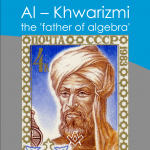 Al - Khwarizmi live c750 - c820 is credited as being the father of Algebra, being asked what is Man, give his answer in an algebraic expression |
masonic knowledge
to be a better citizen of the world
share the square with two brothers

click image to open email app on mobile device



